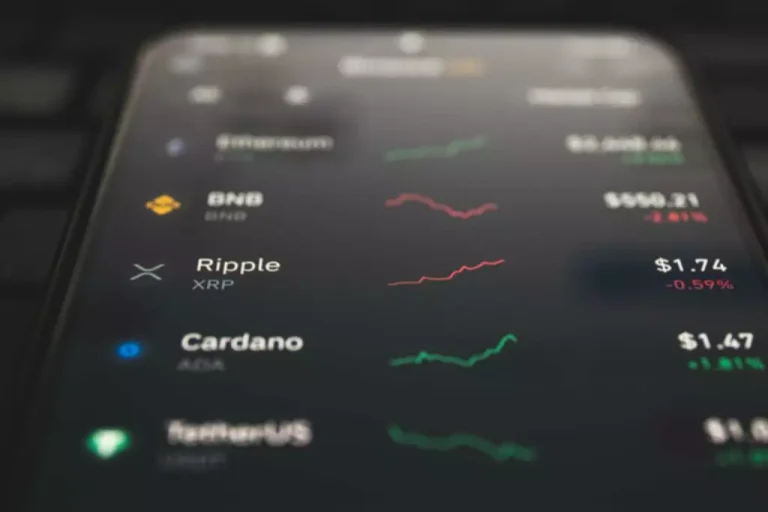What's the Difference Between an Investor and Trader
Traders play a critical role in providing liquidity to financial markets. Traders have investors beat in terms of the volume of trades and the speed at which they're executed, but investors have an advantage in terms of long-term goals and strategies. Most novice technical analysts focus on a handful of indicators, such as moving averages, relative strength index, and the MACD indicator. These metrics can help determine whether an asset is oversold or overbought, and therefore likely to face a reversal. Bonds, especially government and treasury bonds, are often perceived as safer havens compared to stocks.

First, determine the amount of money you want to trade with. Based on this, you can determine the size of the positions you can take. HowToTrade.com helps traders of all levels learn how to trade the financial markets.
Ultimately, having a properly funded account is essential to execute trades smoothly on a platform. Traders may face higher risks due to frequent trading and short investment horizons. However, with effective risk management strategies, traders can mitigate potential losses. When investors hold their assets through market trading or investing which better cycles, they can weather short-term fluctuations and potentially benefit from long-term upward trends. It’s important to acknowledge that the markets can be unpredictable, and there are no guarantees when it comes to investing. However, historical data has shown that, over time, the stock market tends to go up.

It is rollercoaster full of fluctuating prices and high market volatility. It is likely that the price quoted to you at the time of placing an order differs from what you actually pay for your securities. This typically happens when markets are extremely volatile, quotes are delayed, or when execution of trades is very slow. To navigate this volatility and safeguard investments, investors turn to different types of orders.

This would appeal to people who like being in a highly dynamic space. Traders can have the flexibility to work remotely and work nonstandard hours. Traders gain significant exposure to the financial markets, as they have to actively and closely monitor them along with the factors that drive the respective markets. Contrarian trading involves analyzing market conditions and taking an opposing side of the prevailing consensus view of the financial markets. This is based on the premise that market participants often overreact to events, leading to significant price movements in financial markets.
- It is both a source of opportunity and risk, depending on one’s perspective and approach.
- Traders can benefit from short-term opportunities and quick profits, while investors can enjoy long-term growth and compounding returns.
- That's because traders monitor the markets consistently for changes in asset prices before making their moves.
- As a whole, traders make money by speculating on the rise and fall of the prices of financial instruments.
Once a plan has been developed and backtesting shows good results, the plan can be used in real trading. While the stock market can be both exhilarating and challenging, armed with knowledge and a prudent approach, investors can harness its potential to achieve their financial goals. Online trading is much faster as compared to offline trading. It is also easier to find the price of securities when the information is flowing electronically. Receiving updates regarding price changes in the form of price alerts, makes it easy to transact shares. It also enables buying products from any location in the world.
The stock market, like any other financial market, is unpredictable and is highly influenced by everything from a company’s quarterly report to global political events. And remember, while compounding can be your best friend with positive returns, it can quickly turn into an enemy with negative ones. If you’re on a losing streak, compounding will amplify those losses. The electronic markets use vast computer networks to match buyers and sellers, rather than human brokers. While this system lacks the romantic and exciting images of the NYSE floor, it is efficient and fast.
Sentiment indicators are based on data comprising trading volume, price movements, and news coverage of financial instruments or markets. Sentiment is also developed through the quantification of surveys or polls. The data helps to gauge the level of optimism or pessimism in the financial markets. Many discount brokers offer margin accounts, which let traders borrow money from the broker to buy assets. This increases the size of the positions they can take but also increases the potential loss.
A losing trade should not surprise us; It's a part of trading. Not having a stop loss is bad practice, even if it leads to a winning trade. Exiting with a stop loss, and therefore a losing trade is still good trading if it falls within the trading plan's rules.
We want instant gratification, but we put a lot of work into that. If you apply this to human relationships, it does make you think, doesn’t it? If you’re looking for a life partner, maybe an investor-type is better—present company excluded, of course.
There is a risk of losing your money regardless of whether you hold it for the long term or for a short period of time. Unlike investors, traders have a short-term https://www.xcritical.in/ time horizon in mind while executing their trades. That's because traders monitor the markets consistently for changes in asset prices before making their moves.
If it's approached as a hobby, there is no real commitment to learning. If it's a job, it can be frustrating because there is no regular paycheck. The rules below work together for results that increase your odds of succeeding in the markets. It means we have renewed patience every day, and we would get bored if we had to watch the same stock for 20 years.
Arbitrage occurs because of market inefficiencies or temporary imbalances in supply and demand. Arbitrage refers to exploiting price discrepancies between two or more instruments or markets. Successful contrarian traders employ a rigorous analytical process to identify potential opportunities and carefully manage risks to avoid significant losses.